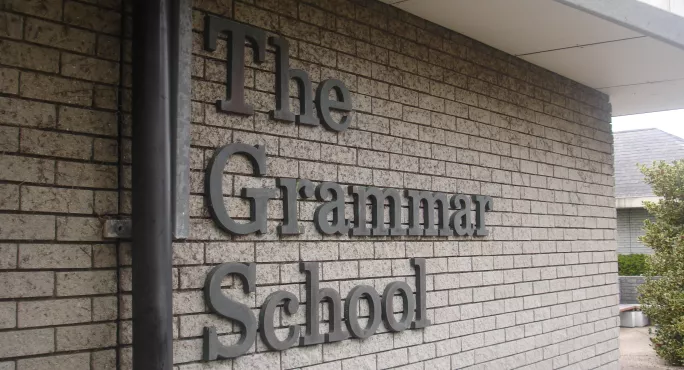- Home
- Grammar schools are revolutionary for disadvantaged pupils
Grammar schools are revolutionary for disadvantaged pupils

Did you know that that 45 per cent of pupils at grammar schools come from households with below median incomes?
Opponents of grammar schools like to portray them as only for the rich, but this statistic makes that claim demonstrably untrue.
Yes, it’s true that grammar schools take a lower proportion of pupils on free school meals than one might expect – but the same is true of the most academically successful comprehensive schools, due to house-price selection. And with opinion polls showing that the public favours grammar school expansion, why do educational experts continue to buck the trend?
One suspects that a principle reason for the opposition of educationalists is that their own children don’t need them. They have all the educational advantages that come with being middle class of course.
How different the situation is for children from households below the median income, with parents who may be manual or low-skilled workers. Though the parents may care just as passionately about their children’s education, they are far more dependent on their local school. For them, access to a grammar school may be the only reliable way to transform their children’s life chances.
With 45 per cent of pupils at grammar schools coming from below median income households, it is therefore unsurprising that support for grammar schools is widespread among such communities.
In a new report for HEPI, the Higher Education Policy Institute, I have found that grammar schools transform access to highly selective higher education, and particularly to Oxbridge, for pupils in every quintile of social disadvantage, from the lowest to the highest. I also consider the new specialist mathematics schools sponsored by King’s College London and the University of Exeter, and find they also achieve exceptional progression to prestigious universities, including for disadvantaged students.
My report considers both the chances of a child from a particular group getting into a grammar school, as well as grammar schools themselves. The fact that more than three-quarters of local authority areas have no grammar schools at all provides a perfect "control group" for the study.
When we compare selective and non-selective areas, we find that 39 per cent of pupils in selective school areas progress from state schools to highly-selective universities, compared to just 23 per cent in comprehensive areas; that a state school pupil from the most disadvantaged quintile is more than twice as likely to progress to Oxbridge if they live in a selective area than a non-selective area; and that England’s 163 grammar schools send more BME students to Cambridge than all 1,849 non-selective state schools combined.
It is clear from this that, for many disadvantaged students, grammar schools provide an unrivalled ladder of opportunity, offering them a route to elite higher education that is simply not systematically available to them elsewhere.
With highly skilled jobs, good salaries and the most prestigious careers often following on from such universities, it is clear that without the few grammar schools we still have, our top professions would have even fewer people from disadvantaged backgrounds than they do now.
Why hasn’t this been spotted before now? Given the social homogeneity amongst educational researchers discussed above, it is hard not to argue that unconscious bias may have played a role. In most previous research on grammar schools, the debate on social mobility has been narrowed to focus only on those eligible for free school meals, without considering the contribution that grammar schools make to enabling social mobility amongst other disadvantaged groups, such as pupils below median income or BME pupils.
Public opinion backs grammar school expansion. The Selective School Expansion Fund is a good start, but more is needed. Where local authorities support it, the government should use the next phase of the expansion fund to support grammar schools to open branch sites in disadvantaged areas. Places at new branch sites should be offered on a strict geographical basis to those who pass the test, to ensure that places are taken up by academically able students from the disadvantaged area, rather than by those commuting in from elsewhere. And the government should also look to increase the number of specialist maths schools from two to 10 by 2022.
The most advantaged quintile of society don’t need grammar schools – they can go private or just "make up the difference at home" while feeling virtuous about themselves. For everyone else, grammar schools are an essential enabler for children who are academically capable of excelling. The evidence is clear: if we want a broader group of people to be able to access elite universities – and then the top jobs – then we need to expand grammar schools now.
Iain Mansfield was formerly a senior civil servant at the Department for Education and is now a university governor
Keep reading for just £1 per month
You've reached your limit of free articles this month. Subscribe for £1 per month for three months and get:
- Unlimited access to all Tes magazine content
- Exclusive subscriber-only stories
- Award-winning email newsletters
